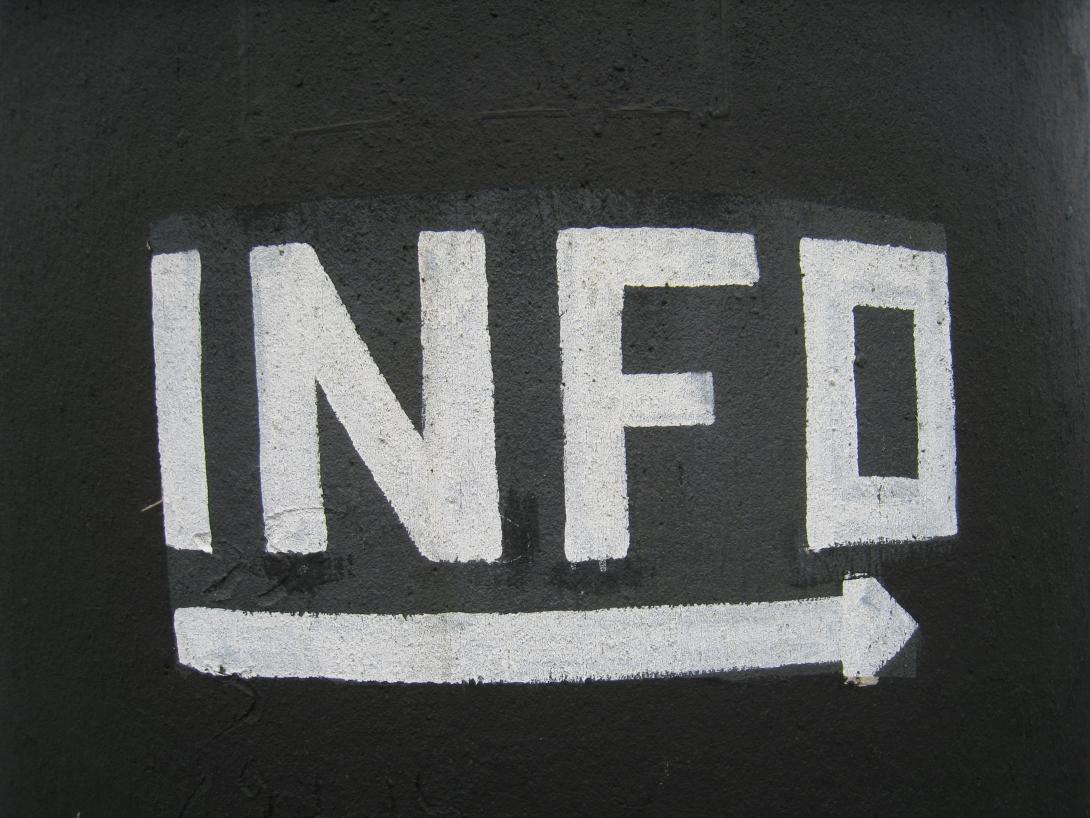Degree class L8 - Information Engineering
The students' initial preparation is tested by administering a multiple-choice test with four different sections: mathematics, logic, science and verbal comprehension.
automatically translated page
The Bachelor of Science in Computer Engineering provides a wide-ranging education, which enables an understanding of the problems and solutions of information technology applied to a variety of service sectors and industry.
The subjects of study are specific to Computer Engineering from the first year onwards and all include, in addition to classroom lectures, practical activities in the many well-equipped laboratories with state-of-the-art tools and free tools, which foster professionalism, design and an understanding of 'how it works', the primary objectives of any engineer.
Graduates in Computer Engineering usually find employment in local and national IT and manufacturing companies; the possibility of entrepreneurial professions should also be considered, which in IT is a feasible reality with little investment, many ideas, a computer and an Internet connection.

President
Prof. Francesco Guerra
Delegate for Tutoring Activities
Prof. Costantino Grana

The members of the Study Course Councils (CdS) are defined annually on the basis of the prevailing teaching loads.
Each Council is assisted in the planning and/or revision of the educational offering by a Steering Committee, which meets at least once a year.
The Bachelor's Degree in Computer Engineering is a programme-based course; in order to be admitted, you must take part in the call for applications.
The compilation of the study plan normally takes place in the third year of the course (as indicated in Art. 9, paragraph 2, of the Degree Course Regulations) using the appropriate ESSE3 function via the web: the time window in which it is possible to compile the study plan is approximately from 15 October to 15 November each year.
In order to achieve at least 180 CFU, the Study Plan for the Degree Course in Computer Engineering is structured as follows:
- 53 CFU compulsory for basic training activities (Type of Training Activity TAF A);
- 81 compulsory CFU for characterising training activities (TAF B);
- 25 CFU compulsory for related and complementary educational activities (TAF C);
- 21 CFU for Other learning activities, of which 12 CFU for activities freely chosen by the student (TAF D), 3 CFU for the final exam and 3 CFU for the English language test (formerly TAF F) and 3 CFU to be acquired through other activities envisaged in the Manifesto (TAF F); using the CFUs of TAF D and those of TAF F, the student may envisage carrying out an Internship or Project Activity of 9 CFU (lasting 3 months, corresponding to no less than 360 hours); in the case of carrying out an Internship or Project Activity, the final examination will consist of the presentation of the activities carried out in the Internship.
The choice CFUs to complete the Computer Engineering course are 12 (TAF D) + 3 (TAF F) = 15 CFU. In order to fill these 15 CFU by choice, the following combinations are possible:
A) 9 CFU from doing a 3-month Internship (company placement) or a Project Activity (PA) and 6 CFU from taking one exam of those chosen from the manifesto of the Computer Engineering degree course;
B) 6 CFU from taking one exam of those chosen from the Computer Engineering degree course, 6 CFU from taking one exam of those chosen from the Computer Engineering degree course and 3 CFU of Advanced English.
A different combination is illustrated in the elective examinations section (see below).
If a student completes the study plan following one of the 2 combinations listed above (via the Web in APPROVED mode), the study plan will be automatically approved (as indicated in Art. 10, paragraph 3).
If a student does NOT complete his/her study plan by the deadline, he/she will be assigned a standard-statutory study plan which, for the cohorts 2014-15 and following, provides for the combination A) with Labour Law as a forced-choice examination. Therefore, if a student does not complete the plan, during the normal duration of the course of study, the subjects required to obtain the degree are all those listed in the standard-statutory study plan.
All examinations passed by a student that are NOT included in his study plan (standard-statutory or self-completed) will be entered in his career as supernumerary and will not be part of the number of CFUs needed to obtain the degree.
For combinations A) and B), you must refer to the manifesto choice examinations of your cohort.
In the case of combination B), the two examinations may be chosen either one in Semester I and one in Semester II, or both in Semester I and both in Semester II. In addition, the 3 CFU of other activities may be acquired with an Advanced English qualification, which may derive either from the recognition of a certificate attesting knowledge of English at level B2 of the CEFR or from taking the specific exam provided by the CLA (Centro Linguistico di Ateneo).
There is also a further combination to make up the 15 CFU of choice, namely:
C) 6 CFUs deriving from taking an examination from among those of choice and 9 CFUs deriving from taking an examination from among those of choice.
In this case (since the manifesto of the Computer Engineering Degree Course does not provide for 9 CFU elective exams) and/or if other 6 CFU elective exams are to be chosen (and not those in the manifesto of the Computer Engineering Degree Course), the study plan can be filled in via the WEB by choosing the PROPOSED mode: in order to be able to fill in this mode, at least the attendance signature must be present in the booklet relating to the exam or exams that are to be included in the study plan. This plan must be explicitly approved by the Degree Course Council, which necessarily takes longer than in the previous case (as indicated in Art. 10, section 4). It is therefore advisable, if one intends to make choices outside the manifesto, to obtain prior information from the President of the Degree Course, in order to avoid incurring non-approval, which would lead, in the event that exams outside the manifesto have already been taken, to NOT being able to consider them in one's career (since they will be considered supernumerary) and thus requiring one to take further exams.
The Final Examination (3 CFU) is independent of the proclamation and will normally take place eight days earlier (for details on the timetable please refer to the page ). The following is a summary of Articles 5 and 6 of the Course Regulations, together with some clarifications.
The Final Examination, after which the degree in Computer Engineering (and hence the title of Doctor of Computer Engineering) is awarded, is accessed after having passed all the educational activities envisaged in one's Study Plan.
The Final Test may consist of:
a) In the presentation and discussion of a report on the activity carried out during the internship - under the supervision of a lecturer - in industries, companies or external bodies, on the basis of appropriate agreements;
b) In the presentation and discussion of a report on the activity carried out - under the supervision of a lecturer - at research laboratories of the University of Modena and Reggio Emilia or of other public or private research bodies, on the basis of specific agreements;
c) In the presentation and discussion of a paper on topics related to subjects in the curriculum, assigned by a lecturer.
The Final Examination may be taken in a foreign language, agreed in advance with the President of the CCdS. In this case, an extended summary of the work/activity must also be prepared in Italian. In both cases, a student may only begin the work that will lead to his/her presentation and discussion in the Final Examination if he/she has obtained no less than 140 CFU.
The mark (always a whole number) that can be awarded to a student in the Final Examination may vary from 0 to 3 hundredths and takes into account the quality of the work carried out and the expository capacity demonstrated. Once
the final examination has been passed, the student must participate in the first public proclamation of graduation (see page ).
The Graduation Committee
a) shall take note of the weighted average of the marks obtained in the examinations, rounded off to the nearest whole number,
b) shall take note of the marks, also expressed in hundredths, obtained in the final examination
c) shall assign a "bonus" of 2 points (in hundredths) to students who complete the study cycle within three academic years from the date of first enrolment,
d) shall calculate the sum of the scores referred to in items a), b), c),
e) may award, by consensus, honours if the sum referred to in item d) is equal to or greater than 110.
The President of the Graduation Committee, during the public proclamation, will then notify the candidate of his final grade and proclaim him a Doctor of Computer Engineering.
Tutoring, in compliance with the provisions of Article 13 of Law 341/90, is a service designed to assist students enrolled at university throughout their studies, removing obstacles to successful course attendance and encouraging active participation in university life.
The tutor is a point of reference to whom one can turn for advice, for help in getting into one's studies and for all forms of assistance aimed at making university studies more effective and productive.
The tutor teacher in particular can provide methodological and didactic support, aimed at overcoming learning difficulties (e.g. preparing for an exam, relating the contents of the various disciplines, clarifying doubts on study subjects) or can contact students in difficulty directly to propose support actions arranged by the University.
The reference teachers are:
Federico Bolelli, Nicola Bicocchi, Francesco Guerra, Costantino Grana.
(for courses of study organised according to DM 270/04).
Compulsory propaedeuticities are defined for each course with the aim of facilitating full enjoyment of the teaching provided. They may be revised before the beginning of each academic year.
PROPEDEUTICITY BETWEEN EXAMINATIONS FOR THE COURT ACTIVE TEACHING SCHEME a.y. 2024/25, 2022/2023 and 2023/24:
| TEACHING | SSD | SEM. | CFU | PROPAEDEUTICITY |
|---|---|---|---|---|
| I YEAR | ||||
| Mathematical Analysis I | MAT/05 | 1 | 9 | OFA |
| Geometry | MAT/03 | 1 | 9 | OFA |
| Mathematical Analysis II | MAT/05 | 2 | 8 | OFA |
| Applied Mathematics and Statistics | MAT/07 | 2 | 5 | OFA |
| II ACTIVE YEAR | NO PROPAEDEUTICITY | |||
| III ACTIVE YEAR | ||||
| Software Engineering | ING-INF/05 | 1 | 9 | English |
| Fundamentals of Telecommunications | ING-INF/03 | 1 | 9 | English |
| Computer Architecture | ING-INF/05 | 1 | 9 | English |
| Artificial Intelligence and Machine Learning/Web Technologies | ING-INF/05 | 1 e 2 | 12 | English |
| Computer Networks | ING-INF/05 | 2 | 9 | English |
| Advanced English | L-LIN/12 | 2 | 3 | English |
PROPEDEUTICITY BETWEEN EXAMINATIONS FOR THE COURT ACTIVE TEACHING SCHEME FOR THE 2021/2022 and 2020/2021 academic years:
| TEACHING | SSD | SEM. | CFU | PROPAEDEUTICITY |
| I YEAR | ||||
| Mathematical Analysis I | MAT/05 | 1 | 9 | OFA |
| Geometry | MAT/03 | 1 | 9 | OFA |
| General Physics | FIS/01 | 2 | 9 | OFA |
| Applied Mathematics and Statistics | MAT/07 | 2 | 6 | OFA |
| II ACTIVE YEAR | NO PROPAEDEUTICITY | |||
| III ACTIVE YEAR | ||||
| Software Engineering and Lab. | ING-INF/05 | 1 | 9 | English |
| Fundamentals of Telecommunications | ING-INF/03 | 1 | 9 | English |
| Operations Research | MAT/09 | 1 | 6 | English |
| Automatic controls | ING-INF/04 | 2 | 9 | English |
| Computer Networks and Lab. | ING-INF/05 | 2 | 9 | English |
| Advanced English | L-LIN/12 | 2 | 3 | English |
PROPEDEUTICITY BETWEEN EXAMINATIONS FOR THE TEACHING SCHEME ACTIVATED BY THE COURT a.y. 2019/2020 (if the teaching is not indicated, it has no propaedeuticity):
CCdS update 4/11/2019
| TEACHING | SSD | SEM. | CFU | PROPAEDEUTICITY |
|---|---|---|---|---|
| I YEAR 2019/2020 | ||||
| Mathematical Analysis I | MAT/05 | 1 | 9 | Ofa |
| Geometry | MAT/03 | 1 | 9 | Ofa |
| General Physics | FIS/01 | 2 | 9 | Ofa |
| Applied Mathematics and Statistics | MAT/07 | 2 | 6 | Ofa |
| II ACTIVE YEAR 2020/2021 | ||||
| Mathematical Analysis II | MAT/05 | 1 | 9 | Mathematical Analysis I |
| Electronic Computers and Lab. | ING-INF/05 | 1 | 9 | Fundamentals of Computer Science I and Lab. |
| Digital Electronics | ING-INF/01 | 1 | 9 | Mathematical Analysis I, |
| Databases and Lab. | ING-INF/05 | 2 | 9 | Fundamentals of Computer Science I and Lab, Fundamentals of Computer Science II and Lab. |
| Object-oriented programming | ING-INF/05 | 2 | 9 | Fundamentals of Computer Science I and Lab, Fundamentals of Computer Science II and Lab. |
| Operating Systems and Lab. | ING-INF/05 | 2 | 9 | Fundamentals of Computer Science I and Lab, Fundamentals of Computer Science II and Lab. |
| III ACTIVE YEAR 2021/2022 | ||||
| Software Engineering and Lab. | ING-INF/05 | 1 | 9 | English |
| Fundamentals of Telecommunications | ING-INF/03 | 1 | 9 | English, Applied Mathematics and Statistics, Digital Electronics |
| Operations Research | MAT/09 | 1 | 6 | English, Geometry |
| Automatic controls | ING-INF/04 | 2 | 9 | English, Mathematical Analysis II |
| Computer Networks and Lab. | ING-INF/05 | 2 | 9 | English, Electronic Computers and Lab., Operating Systems and Lab. |
| Advanced English | L-LIN/12 | 2 | 3 | English |
PROPAEDEUTICITIES BETWEEN EXAMINATIONS FOR THE NEW TEACHING SCHEME ACTIVE FROM THE A.Y. COHORT 2014-15
As established in Paragraph 9 of Art. 4 of the RDCL, the following compulsory propaedeuticities are defined (binding for enrolment and the recording of examinations) (DELIBERATED AT THE INTERCLASSE COUNCIL OF 28/01/2015)
For 2nd year examinations:
I SEMESTER
| Mathematical Analysis II | Mathematical Analysis I |
| Electronic Computers and Lab. | Fundamentals of Computer Science I and Lab. |
| Technical Physics for Computer Science | General Physics |
II SEMESTER
| Databases and Lab. | Fundamentals of Computer Science I and Lab, Fundamentals of Computer Science II and Lab. |
| Digital Electronics | Mathematical Analysis I, General Physics |
| Operating Systems and Lab. | Fundamentals of Computer Science I and Lab, Fundamentals of Computer Science II and Lab. |
| Object Oriented Programming | Fundamentals of Computer Science I and Lab, Fundamentals of Computer Science II and Lab. |
For 3rd year examinations:
I SEMESTER
| Fundamentals of Telecommunications | Applied Mathematics and Statistics, Digital Electronics, English |
| Software Engineering and Lab. | Databases and Lab, Object Oriented Programming, English |
| Operations Research | Geometry, English |
II SEMESTER
| Automatic Controls | Mathematical Analysis II, English |
| Computer Networks and Lab. | Operating Systems and Lab, Electronic Computers and Lab, English |
PROPEDEUTICITY BETWEEN EXAMINATIONS FOR THE TEACHING SCHEME VALID FOR COURTS UNTIL THE 2013-14 A.Y.
As established in paragraph 9 of Art. 4 of the RDCL, the following compulsory (binding for enrolment and the recording of examinations) and recommended
propedeuticities are defined (UPDATE DELIBERATED AT THE INTERCLASION COUNCIL OF 19/03/2014):
For 2nd year examinations:
MANDATORY:
I SEMESTER
| Mathematical Analysis II | Mathematical Analysis I |
| Electronic Computers and Lab. | Fundamentals of Computer Science I and Lab. |
| Electrical Circuits | Mathematical Analysis I, Physics |
| Thermal Control of Calculation Systems | Mathematical Analysis I, Physics |
| Fundamentals of Chemistry for Computer Science | Mathematical Analysis I |
II SEMESTER
| Databases and Lab. | Mathematical Analysis I, Fundamentals of Computer Science I and Lab. |
| Fundamentals of Electronics | Mathematical Analysis I, Physics |
| Operating Systems and Lab. | Fundamentals of Computer Science I and Lab, Fundamentals of Computer Science II and Lab. |
RECOMMENDED:
| Mathematical Analysis II | Geometry |
| Electronic Computers and Lab. | Fundamentals of Computer Science II and Lab, English (Mathematical Analysis I, Geometry, Physics) |
| Electrical Circuits | Applied Mathematics and Statistics, Geometry |
| Fundamentals of Electronics | Electronic Computers and Lab., Electrical Circuits, (Fundamentals of Chemistry for Computer Science, Thermal Control of Computing Systems) |
| Databases and Lab. | Fundamentals of Computer Science II and Lab, Mathematical Analysis II, Electronic Computers, English (from A.Y. 2013-14) |
| Operating Systems and Lab. | Electronic Computers and Lab, English (from A.Y. 2013-14) |
| Thermal Control of Calculation Systems | None |
| Fundamentals of Chemistry for Computer Science | Physics |
For Year III examinations:
MANDATORY:
I SEMESTER
| Economics and Business Organisation | Mathematical Analysis I, English (from A.Y. 2014-15) |
| Fundamentals of Telecommunications | Applied Mathematics and Statistics, Mathematical Analysis II, Electrical Circuits, Fundamentals of Electronics , English (from A.Y. 2014-15) |
| Software Engineering and Lab. | Geometry, Fundamentals of Computer Science II and Lab, Databases and Lab, English (from A.Y. 2014-15) |
II SEMESTER
| Automatic Controls | Mathematical Analysis I, English (from A.Y. 2014-15) |
| Computer Networks and Lab. | Operating Systems and Lab, Electronic Computers and Lab, Databases and Lab, English (from A.Y. 2014-15) |
RECOMMENDED:
| Economics and Business Organisation | Applied Mathematics and Statistics, Mathematical Analysis II |
| Software Engineering and Lab. | Electronic Computers and Lab., Operating Systems and Lab. |
| Automatic Controls | Mathematical Analysis II |
| Computer Networks and Lab. | Fundamentals of Telecommunications, Software Engineering and Lab. |
The list of active courses, their location in the semesters and whether or not they are compulsory can be found in the Study Manifesto section of the course home page.
You can find the Study Program's documents about the Quality Assurance at the link below.


